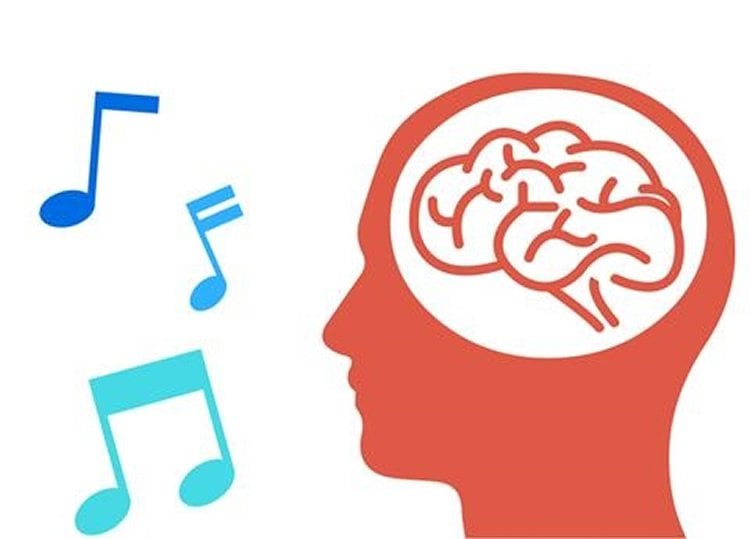Summary: A new study reports learning and performing music could be of benefit to those who have experienced traumatic events.
Source: Taylor and Francis.
Understanding the factors that impact on brain development and brain function in musicians can empower music teachers to unlock each learner’s full potential, a new study published in Muziki: Journal of Music Research in Africa suggests.
Inette Swart of North-West University, South Africa shows how incorporating training in psychology into the music education system could be beneficial, particularly to those learners who have experienced traumatic events.
Neuroscientific research indicates that the right hemisphere of the brain, where the earliest-forming parts of the developing self and identity originate, appears to contribute most to the emotional meaning of music. The highly impressionable and malleable right-brain is also where early traumatic experiences are imprinted.
Thus, teachers should consider the role of music in a learner’s life and use this to their advantage in the teaching strategy, Swart says. For learners who have suffered significant trauma, it is particularly important to understand what role music fulfils in their lives, what best motivates them, and how their goals and reasons for participation in music might differ from a teacher’s expectations of them.
While memory for music is acquired and assessed through many different neural pathways, the processing of information involves brain structures – most notably, the amygdala and hippocampus – that are also involved in processing memories of fear. Neurons that fire together form connections and are likely to be retrieved together once an associated memory is recalled. This process is important in the memorization of music and also has implications for consciously separating the experience of fear and fear memories from the experience of learning and performing music.

To reduce the chances of debilitating stage fright patterns becoming established in previously traumatized learners, music performance should be associated with the anticipation of positive experience, Swart suggests. Such learners may benefit from practicing the art of performing in environments where they feel relatively safe, before playing at more important concerts or competitions.
Inette Swart said: “Music has great potential for providing emotionally and relationally reparative experiences, particularly, but not exclusively, to previously disadvantaged learners. Facilitating neural change takes discipline, while intersubjective models of human behavior, such as those proposed by neuropsychoanalyst Dr. Allan Schore, have shown clearly that human actions and development do not occur in isolation. It is time that this discipline becomes a shared societal responsibility.”
Source: Taylor and Francis
Image Source: NeuroscienceNews.com image is adapted from the Taylor and Francis press release.
Original Research: Abstract for “New developments in neuroscience can benefit the learning and performance of music” by Inette Swart in Muziki. Published online September 28 2016 doi:10.1080/18125980.2016.1182386
[cbtabs][cbtab title=”MLA”]Taylor and Francis. “How Neuroscience Could Benefit From the Learning and Performance of Music.” NeuroscienceNews. NeuroscienceNews, 14 October 2016.
<https://neurosciencenews.com/neuroscience-music-learning-performance-5301/>.[/cbtab][cbtab title=”APA”]Taylor and Francis. (2016, October 14). How Neuroscience Could Benefit From the Learning and Performance of Music. NeuroscienceNews. Retrieved October 14, 2016 from https://neurosciencenews.com/neuroscience-music-learning-performance-5301/[/cbtab][cbtab title=”Chicago”]Taylor and Francis. “How Neuroscience Could Benefit From the Learning and Performance of Music.” https://neurosciencenews.com/neuroscience-music-learning-performance-5301/ (accessed October 14, 2016).[/cbtab][/cbtabs]
Abstract
New developments in neuroscience can benefit the learning and performance of music
As advancements in neuroscience increasingly illuminate the traditional understanding of the human mind, many of the new insights are also of relevance to musicians as well as to music pedagogy. Especially the greater understanding of how intersubjective processes are integral to the development of the right brain has shown how, according to the neuropsychoanalyst Allan Schore, right-brain models can bridge the fields of psychiatry, music and trauma. Following a short introduction, the article discusses the development of ego boundaries and their relevance to young aspiring musicians as well as the close relation to self-esteem. This is followed by a short explanation of the psychodynamic processes underlying interpersonal interaction and relation. Right-brain function in development and trauma is discussed and its links to music are highlighted; the issue of fear and learned helplessness in musicians is also considered briefly. A discussion on the impact of fear on musicians’ memory follows. The paper concludes by showing that, while brain pathology can be associated with creativity, creative processes in and of themselves are not pathological. Throughout, special reference is made to aspects that have particular relevance to previously disadvantaged music learners.
“New developments in neuroscience can benefit the learning and performance of music” by Inette Swart in Muziki. Published online September 28 2016 doi:10.1080/18125980.2016.1182386







